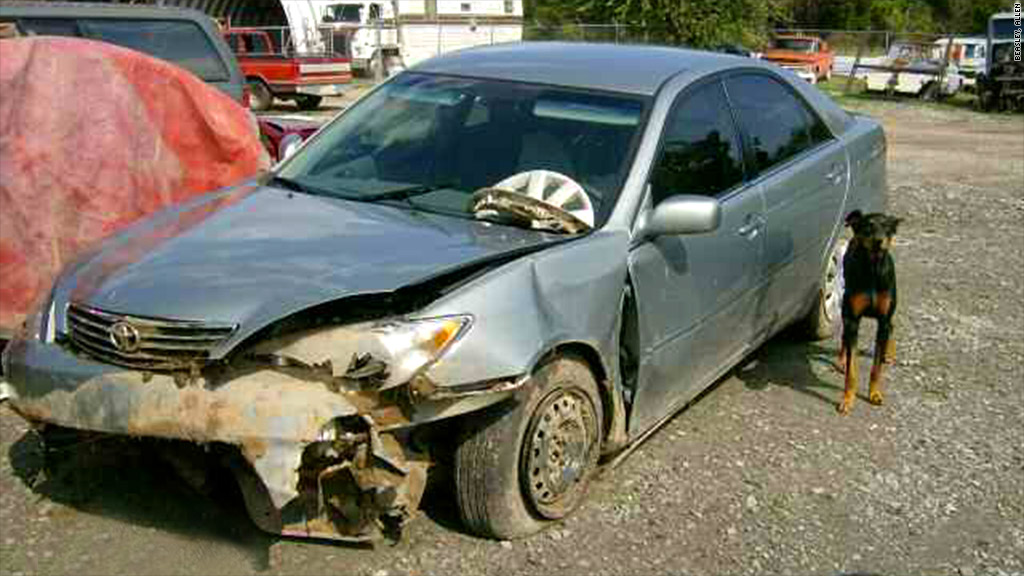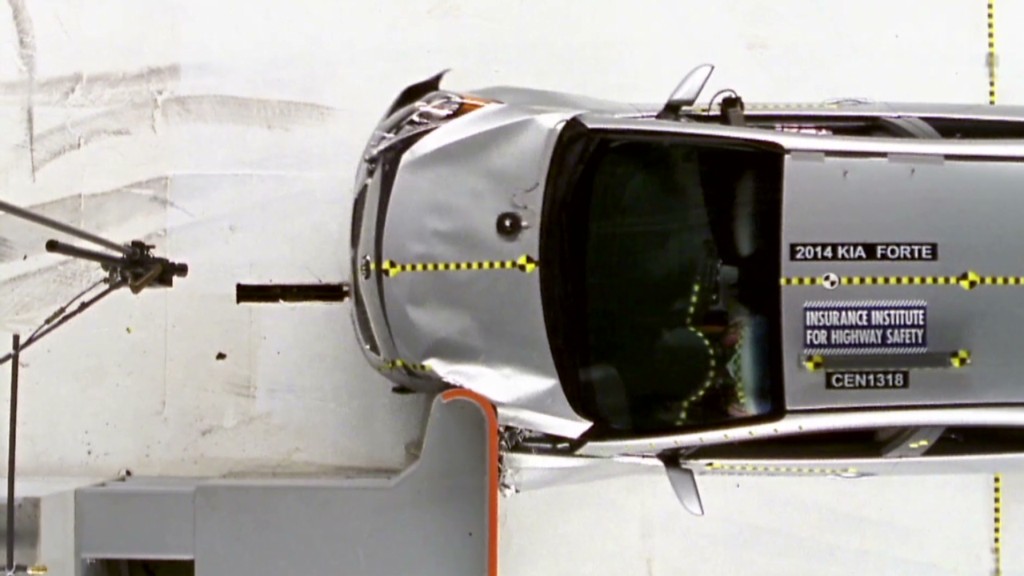
Toyota has agreed to pay the driver and the survivors of a passenger killed in a 2007 Camry crash the driver claimed was caused by the car accelerating on its own.
The settlement was reached the day after a $3 million jury verdict that was the first court loss for Toyota in an unintended acceleration case. On Thursday, the Oklahoma City jury awarded $1.5 million each to the injured woman and the survivors of the woman who was killed.
The jury also found Toyota liable of "reckless disregard" for the public's safety. It was due to start consider whether Toyota would pay additional punitive damages to the victims. But the plaintiffs' lawyers announced Friday they had reached a settlement with Toyota for an undisclosed amount that would cover both the damages and the potential punitive payout.
"While we strongly disagree with the verdict, we are satisfied that the parties reached a mutually acceptable agreement to settle this case," said Toyota in a statement. "We will continue to defend our products vigorously at trial in other legal venues."
According to plaintiff attorney Cole Portis, Toyota continues to deny it was at fault in the settlement. But he said the agreement ends the chance for Toyota to appeal the verdict and will get the money for the elderly plaintiffs without delay.
"We are fully convinced that Toyota's conduct from the time the electronic throttle control system (ETCS) was designed has been shameful" said Portis. "We appreciate that the jury had the courage to let Toyota and the public know that Toyota was reckless. Hopefully, Toyota will recall all of their questionable vehicles and install a computer that will be safe."
Toyota has already agreed to pay $1.1 billion to settle a class-action suit by car owners who saw the resale value of their cars decline. A little more than half of the settlement went toward installing a "brake override" system in affected vehicles. But that settlement does not cover cases in which personal injury or death occurred. According to financial filings, the automaker still faces more than 700 unintended acceleration cases.
Related: Toyota recalls 870,000 vehicles for spider-related problems
Incidents of unintended acceleration were a major problem for Toyota in 2010, forcing it to temporarily halt both production and sales of eight of its models, and to recall 2.3 million vehicles. The recall caused significant damage to Toyota's reputation for vehicle quality and safety, and hurt its market share even after it resumed selling the recalled models.
Toyota eventually paid more than $66 million to U.S. safety regulators in four separate fines after an intensive 10-month federal investigation into the problem. Authorities found no fault with the automaker's electronic throttle control systems, but they did conclude Toyota failed to report in a timely manner problems with floor mats that held down the accelerator pedal, as well as faulty gas pedals that got stuck.
Related; Toyota Corolla struggles in new crash test
The Japanese carmaker has started to recover some of its lost market share, and recaptured its title as the world's top automaker in 2012. But Thursday's verdict is an unwanted reminder of its recent problems.

The crash involved Jean Bookout, who was driving the 2005 Camry, and her passenger Barbara Schwarz. They were driving near Lake Eufaula in Oklahoma when the car started to accelerate. Bookout, who was 76 at the time of the accident, said she not only used the brake but the emergency brake to try to stop the car.
Toyota lawyers in the case argued that Bookout must have hit the gas rather than the brake. But the plaintiff's attorneys argued that there were 150 feet of skid marks at the scene of the accident.
Related: Tesla doges full investigation after fiery crash
The plaintiff's attorneys argued the accident was caused by defects in Toyota's electronic throttle control system, specifically in the embedded computer system. While Toyota cited the federal probe that found no fault with the electronic control system, the jury was not convinced.

